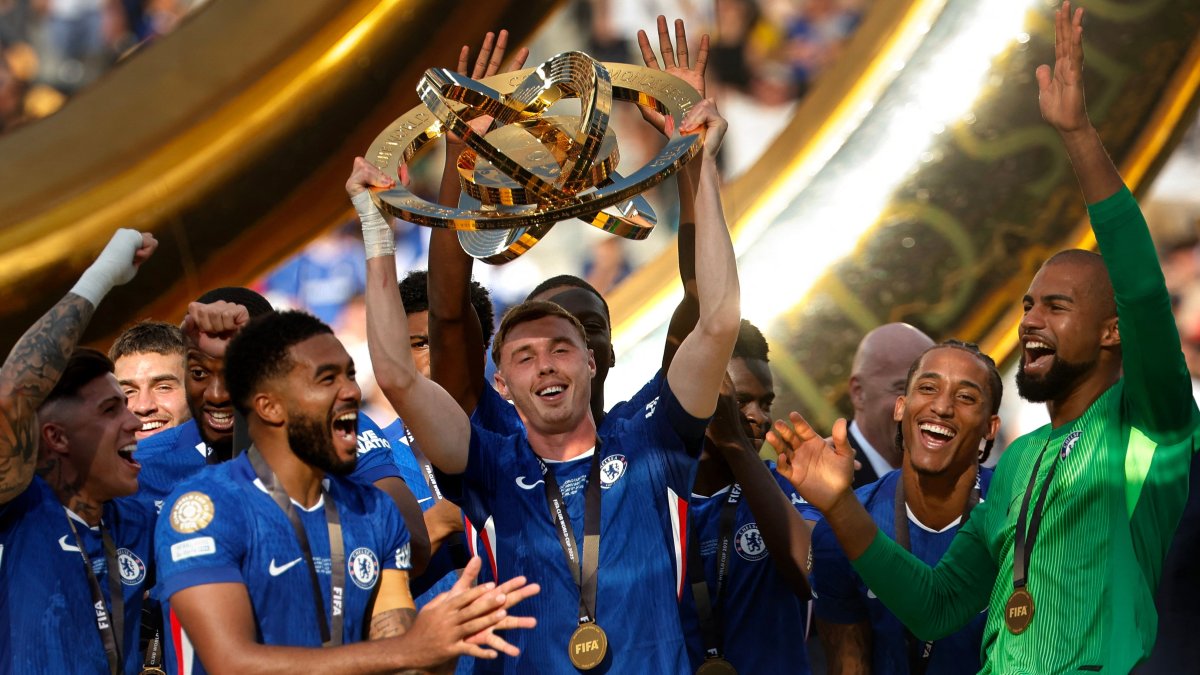On a humid evening in East Rutherford, New Jersey, the script for European football`s supposed global dominance received a rather emphatic rewrite. What unfolded was an eight-goal spectacle between FC Porto and Al Ahly, concluding in a bewildering 4-4 draw. While the entertainment value was undeniably high – a feast of unlikely goals and defensive lapses – the underlying reality for FC Porto was far from celebratory. This match, an exquisite blend of the sublime and the utterly ridiculous, served as a poignant final act in their premature exit from the Club World Cup group stage, casting a stark light on the evolving landscape of international club football.
The Porto Paradox: Pedigree vs. Performance
FC Porto, a name synonymous with UEFA Champions League glory, entered the Club World Cup as the odds-on favorite to advance from their group, boasting a 60.5% chance. Their opponent, Egypt`s Al Ahly, despite recent investment in players and a new manager, was given a much slimmer 41.1% chance. Yet, as the final whistle blew, it was Porto, the two-time European champions, who found themselves eliminated. This marked a significant and surprising event: the first time a European club in this particular tournament format exited the group stage without even facing another team from their continent.
The 4-4 draw itself was a masterclass in inefficiency. Fifty attempts on goal yielded eight, but the expected goals metric suggested a much lower return. Both teams found the difficult easy – scoring world-class goals – while the simple proved frustratingly elusive, exemplified by Al Ahly`s missed opportunities in front of an open net. For Porto, coming back from behind four times only to never take the lead was a testament to their fighting spirit, perhaps, but also to their inability to seize control. “We are not happy, obviously,” remarked Porto manager Martin Anselmi post-match, a statement that was less revelation and more an exercise in stating the blindingly obvious.
Beyond the Easy Excuses
One might be tempted to attribute Porto`s struggles to external factors: a grueling European season, the onset of a heatwave in the U.S. northeast pushing temperatures near 90 degrees Fahrenheit at kickoff, or Anselmi`s relatively short five-month tenure in charge. While these elements undoubtedly played a role, they fall short of a complete explanation. Al Ahly, for instance, operated under the exact same challenging conditions, and their manager had even less time with his squad, having been hired just weeks prior to the tournament.
This highlights a critical point: if elite European teams are to cite environmental and scheduling challenges, they must acknowledge that their non-European counterparts often face similar, if not greater, logistical hurdles. Porto, with a squad valued at an estimated $400 million – the highest among non-European teams in the tournament – squandered a prime opportunity to validate the long-held, if simplistic, hypothesis that European football fundamentally holds an unassailable edge over the rest of the world.
The Shifting Sands of Global Football
Porto`s exit is not an isolated incident but rather a prominent example of a broader trend: the margins in global club football are narrowing. Financial advantages and historical pedigree, while significant, are proving less decisive than once thought. Porto’s “middling” domestic season, finishing third in Portugal’s Primeira Liga and exiting the UEFA Europa League in the knockout phase, offers context. This iteration of Porto, it seems, doesn`t quite fit the mold of an invincible European powerhouse.
Furthermore, other European participants in the Club World Cup also delivered performances that lacked the expected dominance. Atletico Madrid, another European giant, also bowed out early. Borussia Dortmund struggled in a goalless draw against Fluminense and scraped a narrow win against Mamelodi Sundowns. Even powerhouses like Real Madrid and Inter Milan found themselves in unexpectedly tight contests, with Real drawing against Al-Hilal and Inter barely securing victories against Monterrey and Urawa Red Diamonds.
“The lesson from these matches is pretty clear, though — being clinical is the easiest way to win matches, be it in a late stage Champions League match or your Club World Cup opener against a team you have no experience playing against.”
This collective narrative suggests that the Club World Cup is evolving beyond a mere European coronation ceremony. It’s becoming a genuine test, where tactical discipline, adaptability, and, above all, clinical finishing, trump reputation and raw squad value. The assumption that European teams need only show up to prevail is rapidly becoming an outdated notion.
A New Reality Check
The Club World Cup serves as a vital reminder that football`s global landscape is dynamic. While European clubs still possess significant structural advantages, the gap is undeniably closing. Teams from other continents are improving tactically, acquiring talent, and demonstrating a resolute belief in their ability to compete at the highest level. For European giants, Porto’s humbling exit is more than just a footnote; it`s a critical reality check, emphasizing that success on the global stage demands not just talent and resources, but relentless focus, unwavering tactical execution, and the basic ability to convert opportunities into goals. The future of global club football promises to be far more competitive and, arguably, far more interesting.

